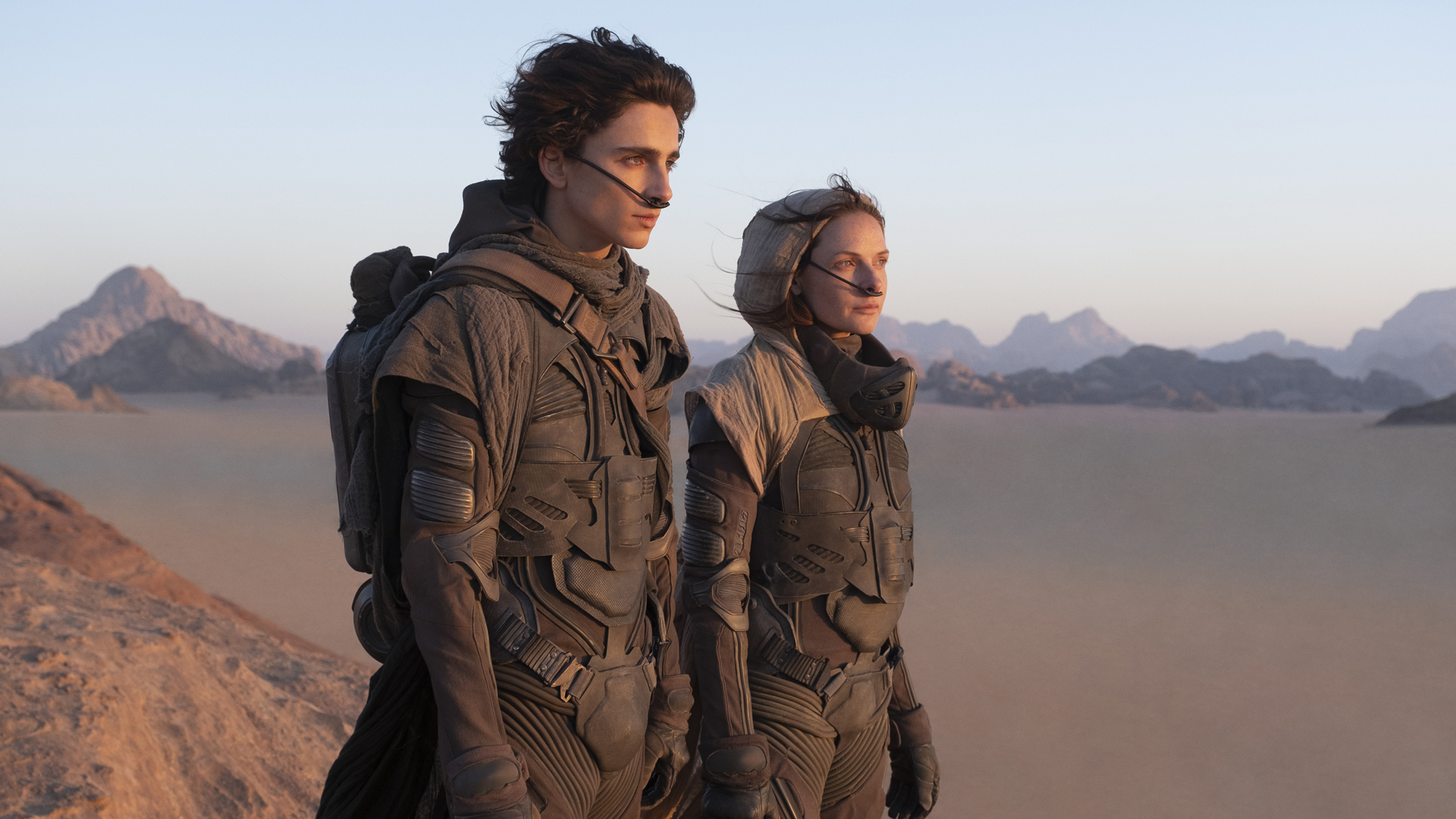
Getting a movie adaptation of a popular book right is a massive challenge: get it wrong, and a series' devoted following won't be happy. It's even more challenging if that book is especially complex, and hasn't historically made the leap to the big screen with much creative success or cohesive storytelling.
This sums up the situation surrounding Dune, Warner Bros’ upcoming movie adaptation of Frank Herbert’s seminal 1965 novel. The sci-fi epic possesses a diehard fan base and a convoluted plot – a potential recipe for disaster for whoever is brave enough to turn it into a film.
With Dune fanatic and Blade Runner 2049 director Denis Villeneuve at the helm, though, Warner Bros’ big screen treatment of Herbert’s iconic novel may have a better chance of succeeding than David Lynch’s maligned 1984 offering.
So how does Villeneuve’s version hold up? Dune is an enthralling adaptation that does justice to Herbert’s grand sci-fi saga, although there are some issues that hinder it during its two and a half hour runtime.
- Adapting Dune: Denis Villeneuve on bringing Frank Herbert’s sci-fi epic to life
- Is there currently a free trial for HBO Max?
- This is how much an HBO Max subscription costs
Set in the far future, Dune follows Paul Atreides (Timothée Chalamet), the heir to House Atreides, as he and his family are entrusted with Arrakis, a dangerous desert planet, by the galaxy’s emperor.
Also known as Dune, Arrakis is the only source of 'spice', the universe’s most valuable substance, which grants its users superhuman abilities and makes interstellar travel possible.
It isn’t long, though, before House Atreides finds itself fighting on multiple fronts. Archrivals in House Harkonnen enviously eye Arrakis’ 'spice' mining operation. The planet’s natives in the Fremen, as well as mammoth sandworms that swim across the deserts, present sizable threats, too. What follows is a sci-fi chronicle for the ages, complete with numerous twists and turns that’ll leave viewers on tenterhooks.
Get daily insight, inspiration and deals in your inbox
Sign up for breaking news, reviews, opinion, top tech deals, and more.
Dune’s elaborate nature is exemplified by the sheer size of its cast. Alongside Paul, Duke Leto (Oscar Isaac) and Lady Jessica (Rebecca Ferguson), Villeneuve’s adaptation introduces us to 16 main and supporting characters.
With each one portrayed by a star name, and given that they’re all key to Dune’s expansive plot, you might think it's an impossible task to seamlessly introduce audiences to each character, their personality and their motives.
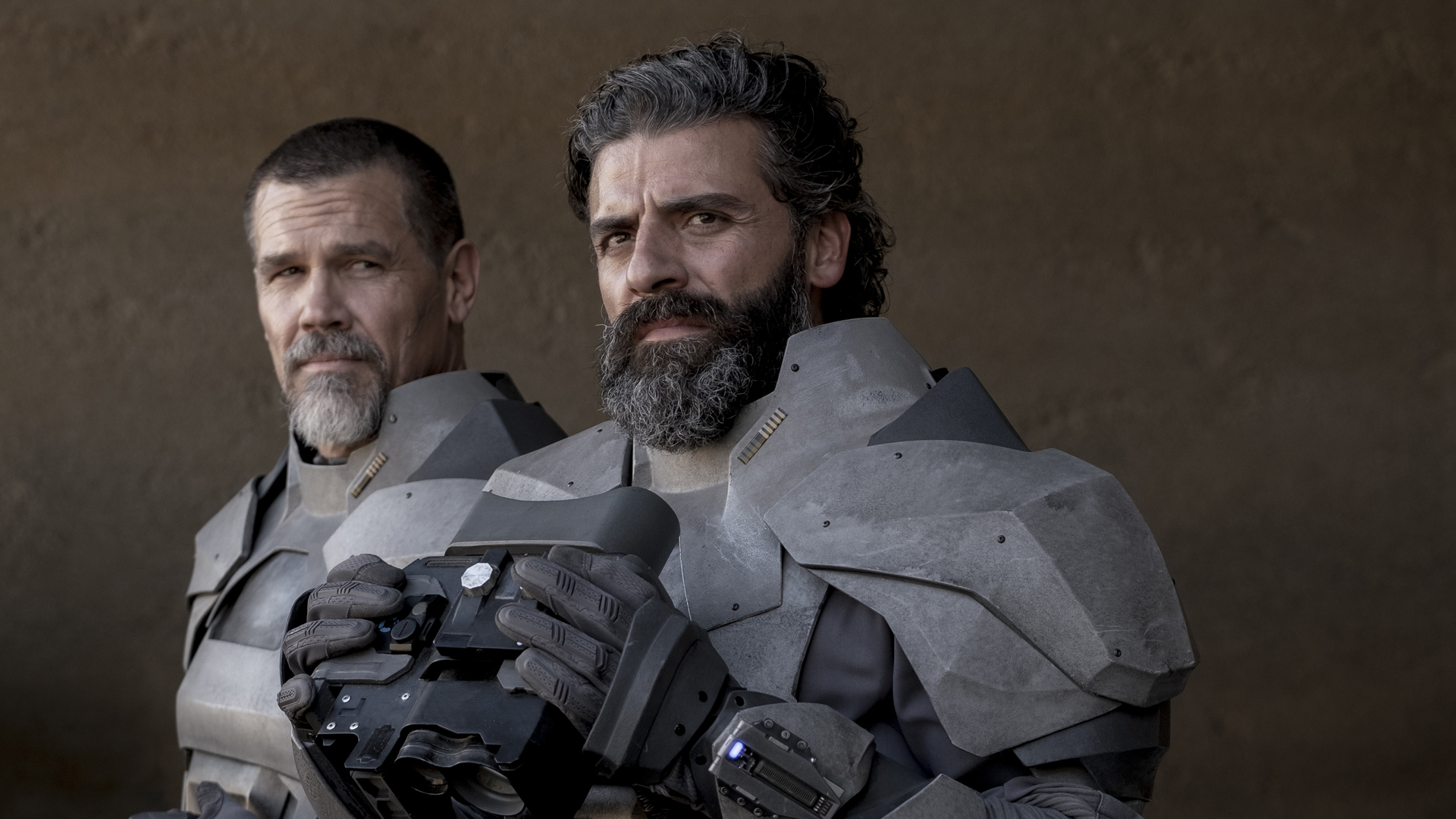
Not so. A pleasing balance is struck that gives us an insight into Dune’s major players, and allows us to occasionally relate to each character.
We see, for example, how Paul is weighed down by the expectation of leading House Atreides one day, while we're given the opportunity to take stock of how flawed these characters are as individuals and a collective. Witnessing how various characters including Gurney (Josh Brolin), Stilgar (Javier Bardem) and Chani (Zendaya) interact with Paul and each other, too, offers many humorous and tense moments throughout the film. There’s an eclectic mix of actors in Dune and their talents are satisfyingly used to maximum effect.
The same can be said of how Dune establishes Herbert’s fictional universe. Villeneuve does a good job of immersing us in the movie’s numerous locations, allowing Dune’s sweeping vistas and scenic splendor to periodically take center stage and break up the narrative. It’s a visually impressive film: you can certainly spot the cinematic similarities between Dune and Villeneuve’s previous works, including Arrival and Blade Runner 2049.
Even when Dune’s plot starts to steer towards exposition territory, it has a novel way of supplying audiences with key information that doesn’t disrupt its flow. Paul’s holographic educational logs provide enough explanation about important subjects, such as Arrakis’ history, without being overly complex or holding viewers’ hands. It’s used effectively throughout Dune’s runtime, breaking down its lore into bite-sized chunks that are easier to digest.
As far as its action goes, Dune provides breathtaking set-pieces and more intimate fight sequences in equal measure.
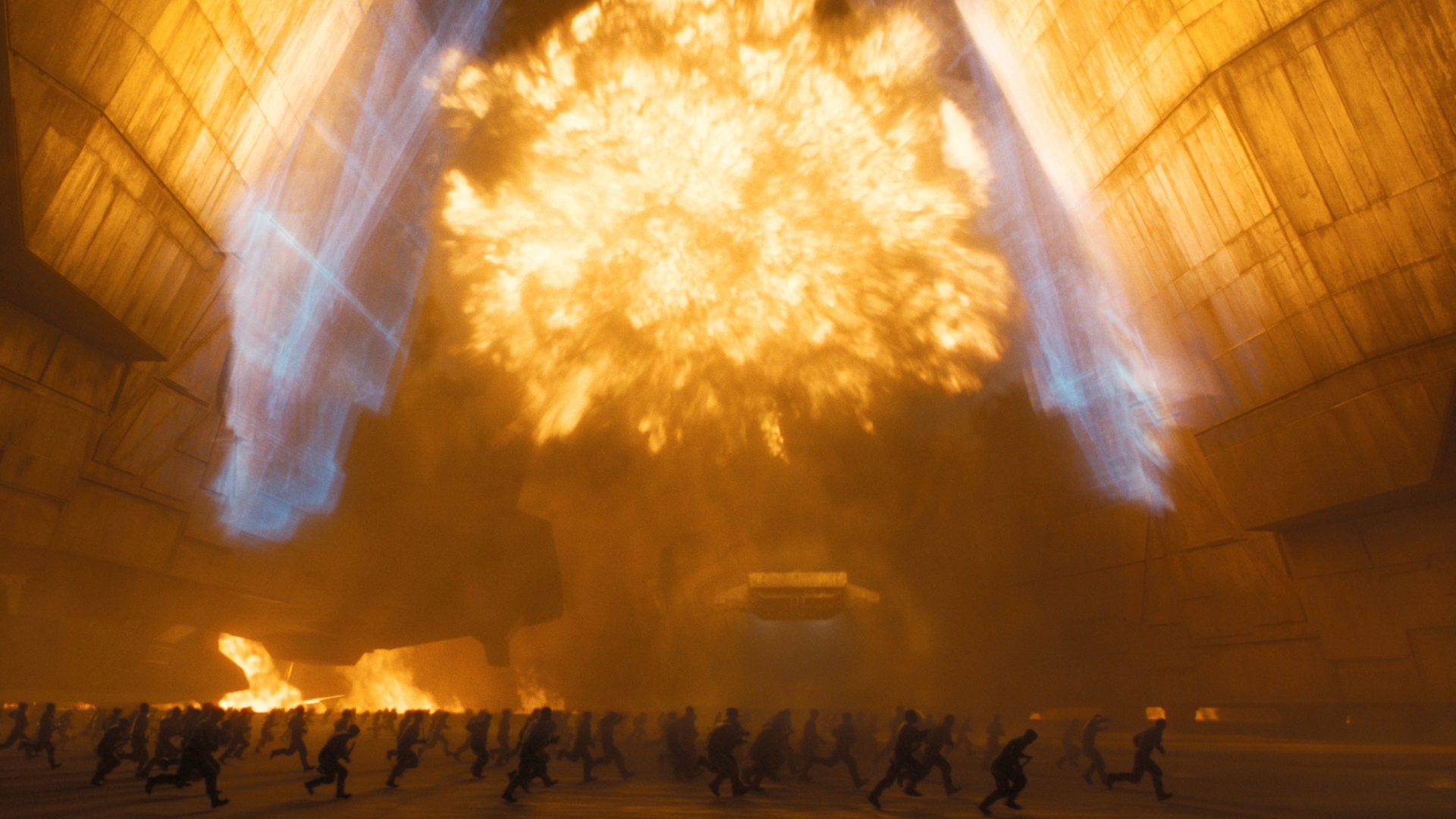
The scope of its largest battle is a sight to behold and, honestly, it needs to be seen on the big screen. Yes, there are plenty of VFX elements that bring the drama to life, but Greig Fraser’s cinematography also adds a layer of visceral realism to the extravaganza. It’s a hard fought and at-times harrowing spectacle that plays out in multiple mini-acts, taking its cues from similarly gigantic set-pieces seen in Star Wars and Lord of the Rings.
Eventually, Dune’s major battle gives way to smaller-scale skirmishes, and it’s here where some of the movie’s biggest shocks and plot twists take place. There’s certainly a Game of Thrones sensibility to these moments but they help to embellish, rather than hinder, the emotional story beats that play out on screen.
The main problem that Dune has is that, after this key moment, its plot starts to meander towards a slightly dissatisfying and rather abrupt conclusion.
After building momentum towards its climactic battle, Dune passes this crescendo moment and strangely begins to outstay its welcome. There are a couple of post-battle surprises in store, as well as a few necessary scenes that speak to the traumatic events that have just unfolded.
But Dune’s final 20 minutes feel like the beginnings of a potential second movie, rather than the perfect stopping point that this first part requires. Villeneuve always planned to tell Dune’s story across two movies, so you can semi-accept this film’s cliff-hanger finale. Still, the final part of its third act feels a tad unnecessary. If it had ended sooner, it might have made for a tighter or more cohesive epilogue.
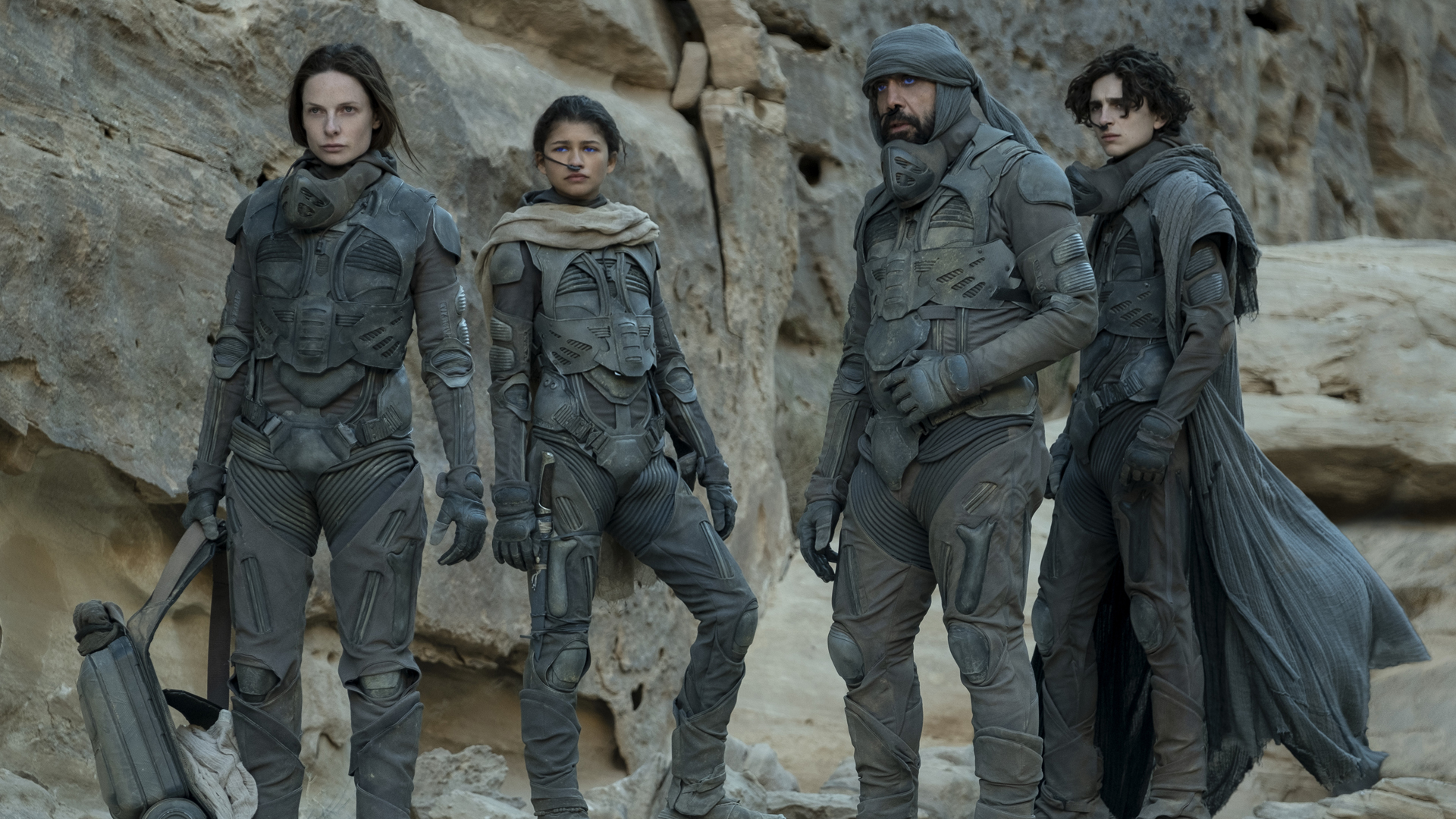
Dune’s finale is its main issue, but there are a couple of other problems that are slightly grating.
For one, it’s sometimes difficult to hear what certain characters are saying. As in some of Christopher Nolan's recent films, specific lines of dialogue are hard to make out: that’s problematic for a film that requires viewers’ full attention to understand what’s going on. Dune’s sound editing is otherwise superb – Hans Zimmer’s score is thunderously glorious – which makes scenes with indiscernible chatter all the more frustrating.
Dune somewhat falls into the trap that other large ensemble movies have been a victim of, too. While it does a great job of introducing us to its sizable cast, there’s not enough time for each to undergo significant character development. Or for them to resonate with audiences on an emotional level before things go awry.
Sure, Chalamet’s Paul, Ferguson’s Rebecca and Jason Momoa’s Duncan Idaho have a number of moments that leave a lump in the throat. It’s unsurprising that this trio are the highlights of Dune’s excellent cast, then. But, Isaac’s Leto aside, nobody apart from this triumvirate gets any emotional payoff for their characters. That’s a touch disappointing when they’re supposed to be integral to Dune’s overarching story.
What we think
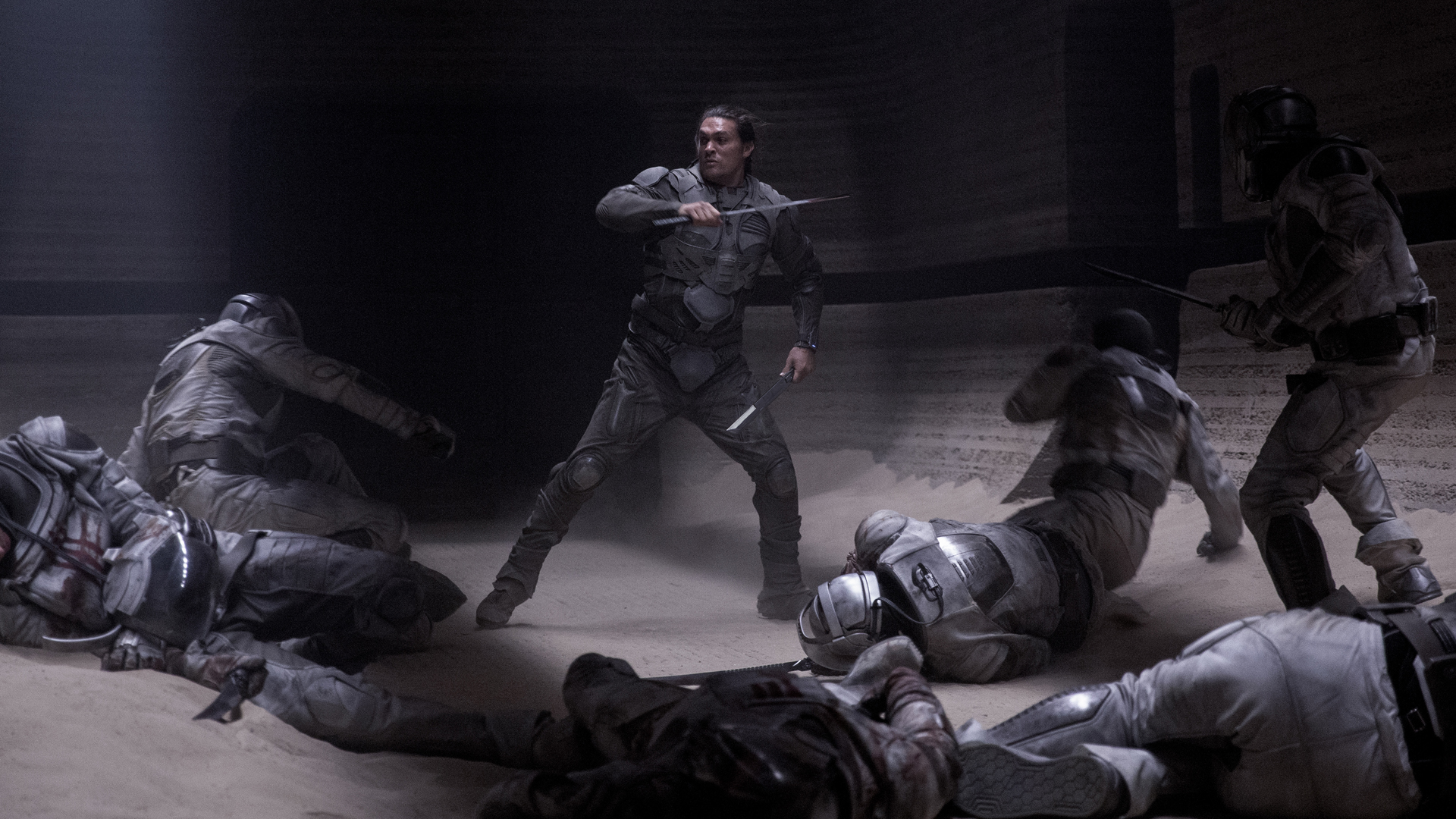
“This is only the beginning,” Zendaya’s Chani tells Chalamet’s Paul in Dune’s final moments.
She’s right, of course. Dune is only the first entry in Villeneuve’s planned film duology, while an HBO Max spin-off called The Sisterhood is also in the works.
Dune isn’t without its faults but, by and large, Warner Bros does have a potential hit on its hands. It’s an atmospheric, brooding and expansive cinematic marvel that, while its source material predates them, has shades of 2001: A Space Odyssey, Mad Max and even Gladiator in its execution. It’s also a thematically dense movie that explores familial legacy, politicking, the longevity of empires and environmentalism.
It’s an accomplishment, too, that Villeneuve is able to present Hebert’s intricately detailed work in a way that makes it accessible to a wider audience. Dune doesn’t forgo the ambitious nature of its source material to appeal to general cinemagoers: it commits to Herbert’s convoluted novel while mostly making it easy to understand. Compare that to David Lynch’s famously divisive attempt in 1984, and that’s no mean feat.
Dune aspires to do justice to its source material, and it does so with aplomb. If Dune Part 2 is similarly faithful, providing it’s greenlit by Warner Bros off the back of its risky hybrid streaming release, there’s every chance that Villeneuve’s adaptation, like Herbert’s book, can become the director’s seminal work of art. Unless that second movie gets the go-ahead, though, Dune feels a tad incomplete.
Dune arrives in UK cinemas on Thursday, October 21. It lands in theaters and on HBO Max (with an ad-free plan) in the US on Friday, October 22.
As TechRadar's senior entertainment reporter, Tom covers all of the latest movies, TV shows, and streaming service news that you need to know about. You'll regularly find him writing about the Marvel Cinematic Universe, Star Wars, Netflix, Prime Video, Disney Plus, and many other topics of interest.
An NCTJ-accredited journalist, Tom also writes reviews, analytical articles, opinion pieces, and interview-led features on the biggest franchises, actors, directors and other industry leaders. You may see his quotes pop up in the odd official Marvel Studios video, too, such as this Moon Knight TV spot.
Away from work, Tom can be found checking out the latest video games, immersing himself in his favorite sporting pastime of football, reading the many unread books on his shelf, staying fit at the gym, and petting every dog he comes across. Got a scoop, interesting story, or an intriguing angle on the latest news in entertainment? Feel free to drop him a line.